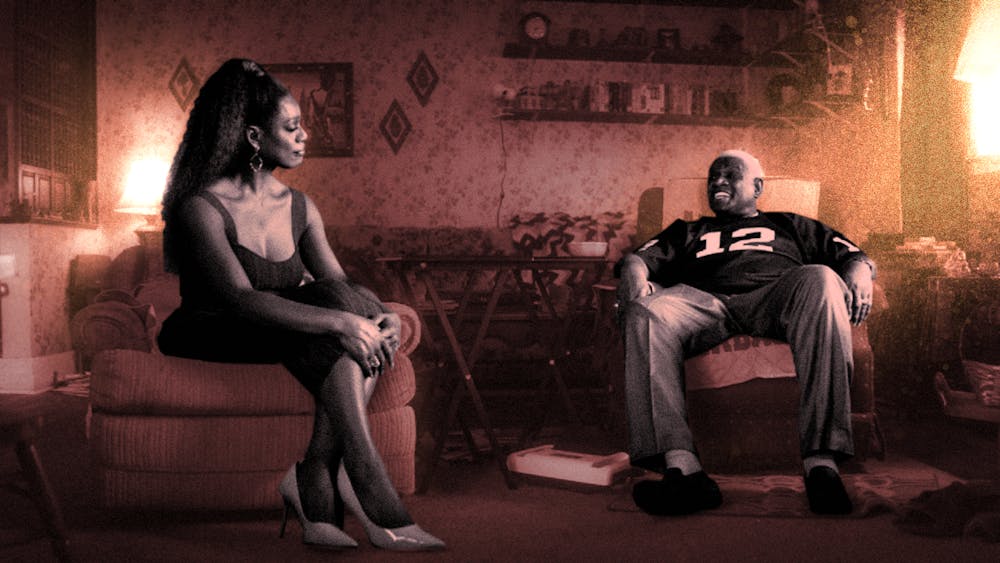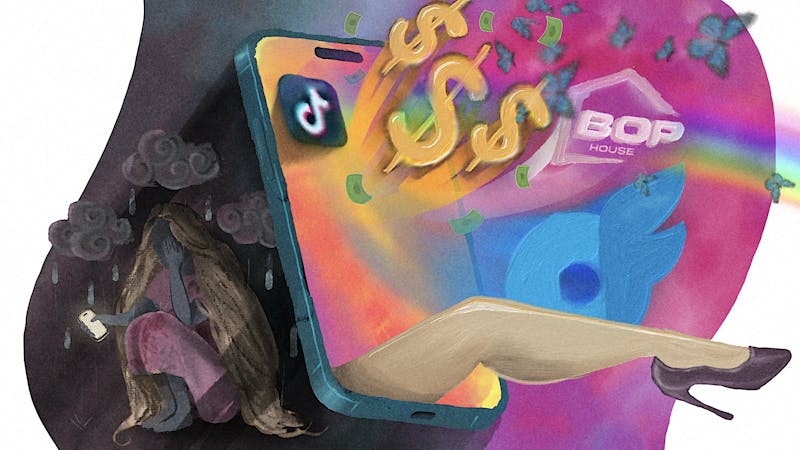Since President Donald Trump’s inauguration into office, several executive orders have been passed that either directly or indirectly target the transgender community. Tensions have begun to grow, as these orders have affected different corporations, companies, and other industries. Tertiary educational institutions have taken an especially large hit, as a more recent executive order has called for the dismantlement of LGBTQ+ policies.
Trans lives are once again strongly endangered. Hate crime charges arespiking, and the current political landscape is becoming very similar to past movements of other historically marginalized people. But times and circumstances like these tend to produce impactful media centered around perseverance and connection within these affected communities. So far, 2025 has not disappointed.
“The laughter I’ve enjoyed most is laughter that has brought numbers of us together.” These are the opening words to Amazon Prime Video’s Clean Slate. The quote from the series’s late executive producer Norman Lear is indicative of the general atmosphere of the show. From the onset, the energy is viscous with the trademark optimistic sentimentalities of the creative team. Clean Slate provides a permeating feel-good energy as it explores the lives of its characters and their struggles in universally relatable ways.
According to George Wallace, the idea for Clean Slate initially occurred in conversations between himself and fellow co–creator Dan Ewen. They expressed strong interest in trans actress Laverne Cox, noting her many achievements since her appearance on the acclaimed show Orange is the New Black. From here, all three joined forces to conceptualize and write the show. This show is also uniquely special in that it serves as Lear’s confirmed final project.
An original comedy show that arrives against the grain of genre–defining IPs like Invincible and Reacher, and less mainstream, yet intriguing products like 1923, Clean Slate is a breath of fresh air not just for the LGBTQ+ community, but also for a subset of viewers looking for something radically different from the current state of streaming television. Desiree Slate, the series’ main protagonist, is wonderfully portrayed by Cox, and acts as an amalgam of Gen Z in the face of a town that holds onto classic ideals. She’s strong and confident in her trans identity, with a resolute adherence to new–gen ideals of self–love and boldness. Desiree goes to therapy, practices breathing exercises, stresses the importance of communication, and enjoys chai, much to the chagrin of her more traditional father.
Harry Slate (George Wallace), owner of a local car wash and one of the neighborhood’s foremost personalities, often feels like a natural extension of Wallace himself in his humor and mannerisms, and the dynamic between these two actors authenticates the show’s comedic element and semi–episodic structure.
Surrounding characters include Mack (Jay Wilkinson), Harry’s car wash co–owner, Mack’s business–aspirational daughter Opal (Norah Murphy), Ella (Telma Hopkins), the leader of the churchgoing Girlfriends of Grace, and Louis (D.K. Uzoukwu), a childhood friend of Desiree. In their own ways, each of these characters incites the Slater family to confront issues or shortcomings they see in themselves, such as Louis’s inability to come out of the closet while leading the church choir, Opal’s will to succeed, and Mack’s desire to provide well for his daughter.
The show also portrays a healthy and transparent depiction of trans love, with Mack enraptured with Desiree on meeting her, but never falling into the tropes or behaviors that the community may find more consistent with chasers. Much to Desiree’s surprise, Mack continues to be respectful, aware, and enthusiastic. Elements like these are refreshing to see, perhaps signifying the advent of a new, more inclusive era of depictions of queer characters and romance in television.
Lear was a strong figure in the sitcom world, and the humor and relational arcs of the show are reminiscent of the trademark sit–and–listen style of engagement of his past projects, including successful shows like Good Times and Mary Hartman, Mary Hartman (both of which have received relatively recent remakes). Rather than layer the lesson in narrative, relationships, and other storytelling tools, Lear chooses to make his message loud and clear for viewers: that everyone is deserving of love and laughter. In the second episode, Desiree expresses that she was always disappointed in Harry for not fighting for her, and we see Harry fighting his way to Desiree’s bus by the end of the episode to convince her to stay in Alabama. It’s on–the–nose, but that may not be a bad thing.
Though the show does well to fold Black sensibilities into its plot, it does not overtly tackle the intersection between Desiree’s two identity markers; a sorely missed opportunity, especially considering the show’s Southern location. Despite this, the current political climate makes shows like these important for their targeted communities, especially for the trans community, who constantly battle misrepresentation in Hollywood and beyond.
Clean Slate is particularly hurt by the fact that it was released after the end of monoculture, the unified cultural experience facilitated by media consumed by a large mass of people. As it pertains to television, the last widely acknowledged show to fit this description was the critically acclaimed Game of Thrones. With streaming becoming so personalized, hyperspecific, and bloated, it is hard to imagine that any show could reach that height of popularity, much less one as divisive as this. Even so, the show’s progression and exploration of themes, such as acceptance and religious impact on identity, encourage refreshing conversation around archetypal representations and real-world impact for its audience.
Since its inception, the media has treated trans individuals as an "other." Disclosure is a 2020 Netflix documentary that explores the misrepresentation of trans people in television over the years via stories from leading trans figures in the industry, including Cox. Representation has definitely gotten better over time, but the stories that center these characters are still few and far between.
In these uncertain times, stories like Clean Slate have the potential to carve niche, safe, discursive, and empowering spaces for their audiences. The show’s celebratory nature sets it up to be one many who relate will call back to and look on fondly. With the future of trans visibility on–screen being so uncertain, it is a relief that we can add this body of work to the growing ensemble of affirming and positive representations. Whether or not Clean Slate inspires similar shows and pieces of media, it does the LGBTQ+ community a great service by showing a healthy and happy trans livelihood in a way that will resonate with many viewers.






